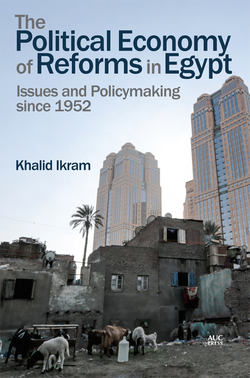The Political Economy of Reforms in Egypt

Реклама. ООО «ЛитРес», ИНН: 7719571260.
Оглавление
Khalid Ikram. The Political Economy of Reforms in Egypt
Отрывок из книги
For Shirin
Preface
.....
A few examples might help convey a flavor of this problem. I have already quoted the Ministry of the Public Enterprise Sector’s estimate that in 1996 (before the Egyptian authorities had agreed to a restructuring of the public enterprise labor force under an IMF/World Bank program), almost one-third of the more than 900,000 workers employed in public-sector enterprises were redundant. Earlier, Waterbury (1983, 246) quoted an official report on overstaffing which noted that in 1975 the Ministry of Human Resources asked the Ministry of Agriculture for the number of graduates that it would need in the following year. The answer was 261 university graduates and 495 with secondary agricultural diplomas. Facing this demand was a supply of eight thousand graduates of agriculture faculties and higher institutes, and eleven thousand holders of agricultural secondary school diplomas. One can only guess at the frustration suffered by graduates who were unsuccessful in getting one of the advertised jobs, and also by those who were forced by circumstances to accept jobs the requirements of which fell well below the graduate’s qualifications.
The problem is durable. Nearly a quarter of a century after the incident described by Waterbury, a headline in the Egyptian Mail (December 5, 1998, p. 2) blared that “3 Million Employees Get Paid for Doing Nothing.” The report quoted the state minister of administrative development complaining that “there are 5 million [public] employees in Egypt, but there are only 2 million jobs. It means that 3 million employees are doing nothing, not to mention that they can slow down the progress of the work.” He urged the country to stop appointing ten persons where there was work only for one. As yet another instance, Galal (2002) reported a government announcement of the availability of 170,000 jobs being confronted by a tsunami of more than 5 million applications.
.....